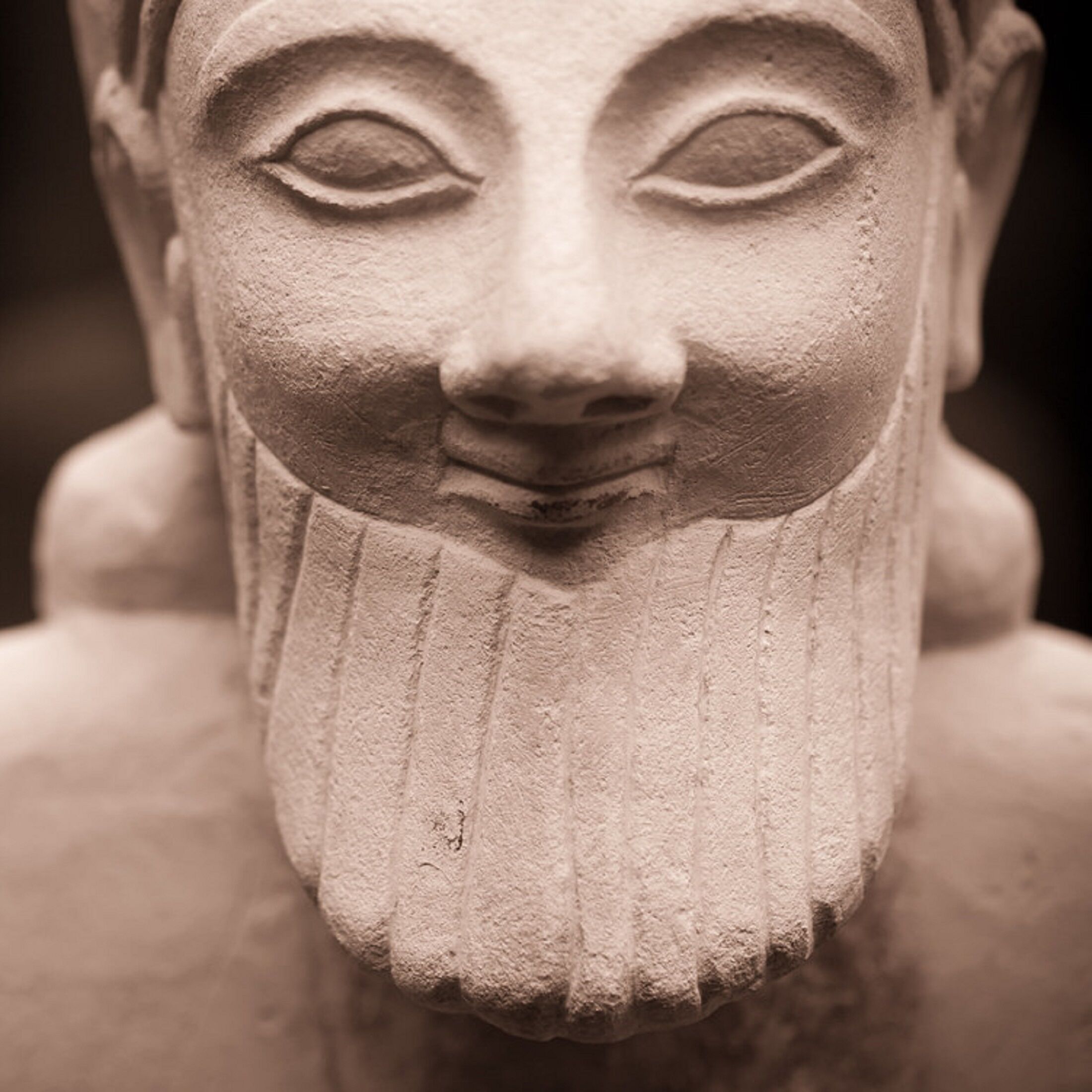Primary Source XXIV: The Hosting of the Achaeans
Description
Bear with me. This is a long (but important!) episode description.Cyprus is mentioned only once in The Iliad. Kinyras, The King of Cyprus, gifts Agamemnon a breastplate as he prepares for war against Troy:"First [Agamemnon] strapped the splendid greaves around his shins, fitted with silver bindings around his ankles; Next he girt about his chest a breastplate, which in time before, Kinyras gave him to be a guest friend, for the great rumor had been heard in Cyprus that the Achaeans were about to sail out in their ships to Troy; for this reason Kinyras gave it to him, seeking favor with the king."-The Iliad 11:15-21However, Cyprus is more intertwined in the Homeric Epics than that sole reference would seem to suggest. According to the ancient scholar and historian, Apollodorus, Kinyras was a legendary King of Cyprus and Priest of Aphrodite who was known for his beauty and musical skill. Apollodorus describes Kinyras as the father of several notable figures in Greek mythology, including the handsome Adonis.In his most famous work, The Library and Epitome (Bibliotheca), Apollodorus informs the reader that in the prelude to the Trojan War, Menelaus and Odysseus visited Kinyras to solicit him for ships to send to Troy. However, the King of Cyprus, being the Priest of Aphrodite, deceived them. Though he promised to send 50 ships, Kinyras provided only one for Agamemnon's cause -- and the rest were made of clay:"Menelaus went with Odysseus and Talthybius to Kinyras in Cyprus and tried to persuade him to join the battle. But he [Kinyras] made a gift of a breastplate for Agamemnon, who was not present; and vowing to send fifty ships, he sent one, which [name lost] the son of Mygdalion commanded. And molding the rest out of clay, he launched them into the sea."-Apollodorus 3.9Kinyras technically fulfilled his obligation but drew the ire of Agamemnon. In later fragments and references, we learn that Agamemnon had, in fact, cursed the King of Cyprus, and drove him from his lands with his Achaean fleet (which some have said corresponds to the so-called Mycenaean Colonization that took place after the Trojan War). Kinyras would ultimately find refuge in Amathus -- the last "indigenous" city on Cyprus.*And then there is The Cypria -- one of the lost Epics that make up the Trojan Cycle.** It is possible that Apollodorus' story is referenced in its fragments but unfortunately, we know very little about The Cypria. The poem is thought to have covered the events leading up to the Trojan War, including the infamous Judgment of Paris and the Rape of Helen. It is believed to have been authored not by Homer, but by one Stasinus...of Cyprus.Next month I welcome John Franklin from University of Vermont to discuss the very Cypriot connections to this important lost Trojan Tale!---------------------------------------------------------------------
* For more on Amathus' "indigeneity," see episode 2, "The Linguistic History of Cyprus with Pippa Steele" and "Amathus with Thierry Petit" on Patreon!
** The Trojan Cycle (often referred to as the Epic Cycle) was a collection of the epic poems related to the Trojan War. Most readers are familiar with The Iliad and the Odyssey simply because they are the only works to have survived. Unlike the Homeric epics, these other poems exist only in fragmented pieces and summaries. There are, in fact, six other poems that made up the Epic Cycle. The order is as follows: The Cypria, The Iliad, Aethiopis, Little Iliad, Iliou Persis, Nostoi, the Odyssey and the Telegony.
More Episodes
Be Happy and Drink Well. Commandaria stands proudly as a testament to the viticultural excellence of Cyprus. In fact, Commandaria holds the distinction of being one of the oldest continuously produced wines in the world. Though produced for centuries, the roots of Commandaria can be traced back...
Published 11/25/24
Arrian's "Anabasis of Alexander" provides us one of the most reliable accounts of Alexander the Great's campaigns -- including Alexander's Siege of Tyre. The siege, which took place in 332BC, relied heavily on Cypriot and Phoenician naval support and provided Alexander a foothold into the Persian...
Published 11/15/24
Published 11/15/24


